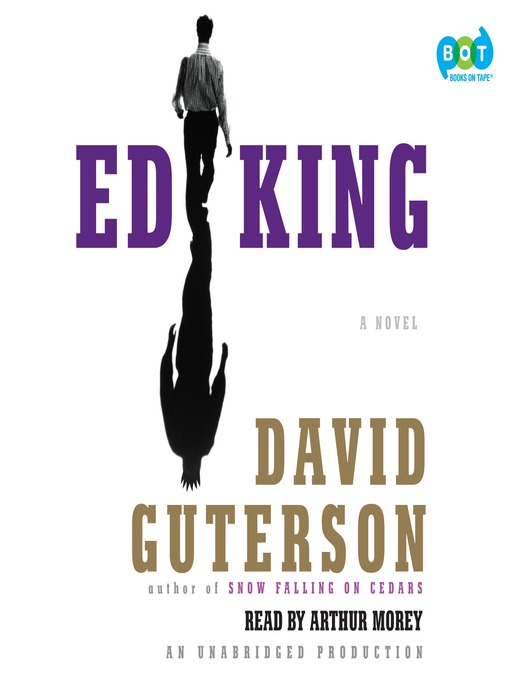
Ed King
کتاب های مرتبط
- اطلاعات
- نقد و بررسی
- دیدگاه کاربران
نقد و بررسی

From foundling to king of search engine algorithms, Ed King is portrayed by Arthur Morey in a fairly straightforward manner--even when sex and humor (cosmic or mundane) take center stage. Ed, the accidental offspring of a scheming au pair and philandering father, is adopted by a nice Jewish couple. Only his minor relations--Jewish and working-class Brits--draw intriguing accents from Morey. King's childhood, rise to power, road-rage encounter with his natural father, and inevitable marriage to his biological mother are events Morey cruises through, consistently absorbing listeners in Guterson's engrossing vision of Greek drama in contemporary America. D.P.D. (c) AudioFile 2012, Portland, Maine

August 1, 2011
Guterson (The Other) uses key elements of Oedipus the King as scaffolding for a snarky comedy skewering contemporary values. In 1962, a 34-year-old actuary seduces an underage au pair, producing a child who, abandoned, is adopted by the prosperous King family and named Edward. But Ed is not a king in name only; he grows into the "king of search," a man in the mold of Jobs or Gates running a company/kingdom akin to Google called Pythia. Guterson fans may be surprised at his lack of sympathy this time out; his characters are superficially realized and relentlessly ridiculed. The cure for the guilt Ed feels over causing a stranger's death? The right antidepressant. Ed has copious encounters with older girls, and then older women, a recurring theme Guterson employs partly for fun, but mostly to trumpet his point: Ed's not only Sophocles' Oedipus but also Freud's, thanks to an oversized (and oversimplified) Oedipus complex. But Guterson gives the myth neither new perspective nor fresh twist, and the ancient drama doesn't illuminate the present. The novel's worldview doesn't allow for heroes or gods, and treats fate as if it were mere coincidence. But the story is propelled by irony, much of it delightful, and if we're able to mock ourselves, we can't be all bad. Can we?

























دیدگاه کاربران